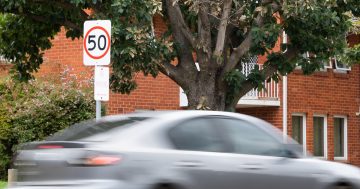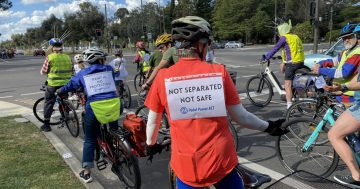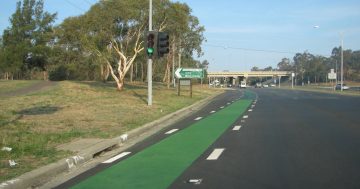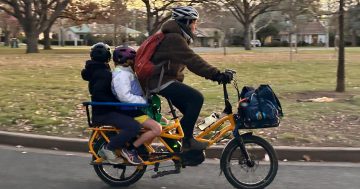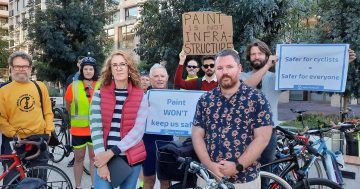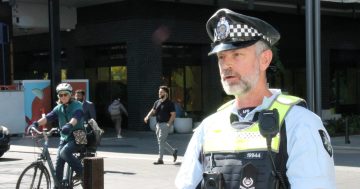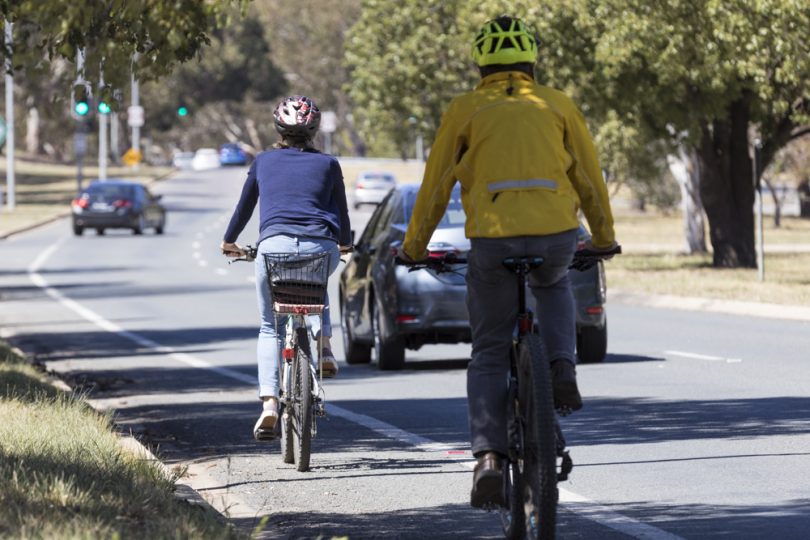
The government is pushing people to EVs, but the benefits of cycling are greater. Photo: Michelle Kroll.
When I was younger, I admit I had a bit of a ‘lead foot’.
In fact, I think by modern standards, I would have been considered a bit of a menace on the roads.
It’s not that I was a bad driver. I’ve never had an accident (touch wood), nor have I ever caused one. But I did drive too fast on occasions, and of that, I am certainly not proud.
I grew up in the bush, with lots of open roads and drove a V8 ute. A sure speed-demon cocktail.
Contrast that with me behind the wheel today, a real cranky pants ranting at hoons who tear along motorways and freeways with reckless abandon. Only occasionally do I remind myself what a hypocrite I have become.
Suburban streets are a different matter.
I’ve always been careful in the cities and towns, usually travelling just below the designated speed limit. I think when you have children or pets of your own, you learn to become a little more careful and a little more patient.
There is a push underway from Pedal Power ACT to reduce the speed limit on Canberra’s suburban streets to just 30 km/h. When I heard about this, I went out later that same day and drove my car at 30 km/h.
My God, it’s slow! Very safe for pedestrians, wayward kids and unrestrained pets but, my goodness, it’s painful.
So I did some research to find out what speed limits other countries set in their town centres.
Most have settled on 50 km/h, including France, Germany, India, Singapore and Indonesia.
A handful have higher speed limits; some, like Belgium and Canada, even have streets with 20 km/h speed limits. Thailand has a metropolitan speed limit ranging between 60 and 80 km/h (anyone who has ever driven in Thailand will tell you, that’s a bit of a joke considering how their cities almost always resemble a giant car park).
Pedal Power argues in its submission to the ACT budget that many European cities have introduced lower speed limits and are reporting positive results. It also argues lowering speed limits is a recommendation of the World Health Organisation.
To help keep speeds down, Pedal Power suggested using planter boxes and other methods to make driving a car more difficult.
In a surprising moment of honesty, the cycling lobby group conceded it would be highly unlikely the ACT Government would even consider dragging the speed limits down. But if they can plant the seed, maybe somewhere down the track …
Greens leader Shane Rattenbury, himself a very keen cyclist, said he would prefer the focus be on improving cycling infrastructure. He suggested rather than lowering speed limits, “let’s just all be kind to each other on the roads, make space for everybody”.
What many European cities are doing now is improving conditions for cyclists. Better paths, more lighting, more opportunities to rent. A lot of focus of the ACT Government lately has been getting people into electric cars, which is very worthy, but cycling provides so many more benefits, not just for individuals but for communities generally.
The government would do well to ensure cyclists are given many incentives to get on the roads.
Asking motorists to drive at 30 km/h might just have the opposite effect and could lead to more road rage, and that’s not good for anyone.













